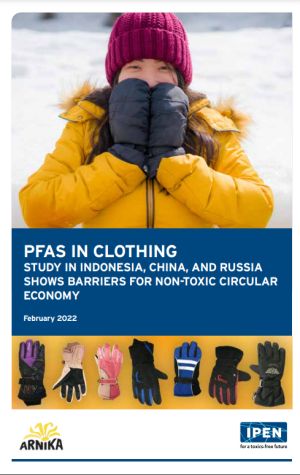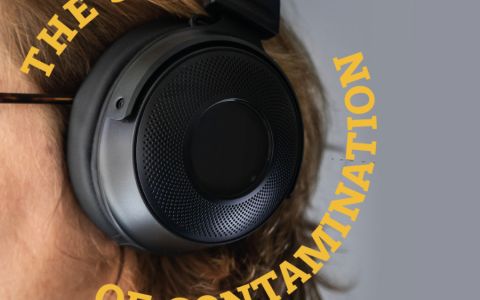This study tested for PFAS and related chemicals in water-resistant clothing sold in China, Indonesia, and Russia.
PFAS (per- and polyfluoroalkyl substances) are a large group of more than 4700 synthetic organic substances used ubiquitously in consumer and professional products. They are used to make products water-, grease- and stain-resistant, and are commonly found in waterproof rain gear and food packaging, as well as in non-stick cookware and firefighting foams. However, most of the PFAS uses are not essential for the functioning of society and have safer alternatives that could be used instead. All PFAS contain very strong chemical bonds between the carbon (C) and fluorine (F) atoms. These bonds provide the high stability of the PFAS molecules and earn them the metaphoric name of ‘Forever Chemicals’.
Their stability makes PFAS very persistent to decomposition and leads to their accumulation in the environment. PFAS or ‘Forever Chemicals’ have been detected in air, soil, water, including drinking water sources, and household dust. Studies have shown that PFAS are emitted to the environment at every stage of their life cycle, including production, while used in products, and after final disposal. When released, they are able to disperse over long distances and can be found far from the places of their origin, including in the Arctic.







